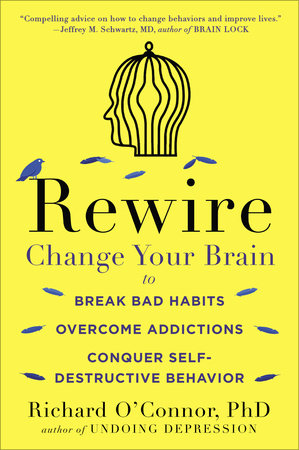Breaking Bad Habits: How to Rewire Your Brain for Success
Habits, deeply ingrained patterns of behavior, significantly shape our lives. While some habits propel us toward our goals, others hinder progress and diminish well-being. Understanding the neurological basis of habit formation is crucial for effectively breaking undesirable patterns and cultivating beneficial ones.
The Neuroscience of Habits
Habits are formed through a neurological process involving the basal ganglia, a region of the brain responsible for procedural learning and habit formation. Repeated actions trigger specific neural pathways. With each repetition, these pathways become stronger and more efficient, eventually leading to automatic behavior. This process is often referred to as "chunking," where a sequence of actions becomes a single, automated unit.
Neurotransmitters, particularly dopamine, play a critical role in reinforcing habits. Dopamine is released when we experience something rewarding, strengthening the association between the behavior and the reward. This creates a feedback loop that drives the repetition of the habit, even if the reward is ultimately detrimental.
Identifying and Understanding Your Habits
The first step in breaking a bad habit is to become aware of its existence and understand its triggers. This involves a detailed examination of the habit loop, which consists of three components:
- Cue: The trigger that initiates the behavior. This could be a specific time of day, location, emotion, or social situation.
- Routine: The actual behavior itself. This is the physical, mental, or emotional action that constitutes the habit.
- Reward: The positive reinforcement that follows the behavior, reinforcing the habit loop.
By identifying these components, you can gain insight into the underlying mechanisms driving your habit. Keep a journal to track your habits and note the cues, routines, and rewards associated with each one. This process enhances self-awareness and provides valuable data for developing effective strategies to break the habit.
Strategies for Rewiring Your Brain
Breaking bad habits requires a multifaceted approach that targets the neurological processes underlying habit formation. Several evidence-based strategies can help you rewire your brain and establish new, healthier patterns of behavior.
Cue Control
Altering your environment to minimize exposure to cues that trigger the bad habit can significantly reduce its occurrence. This might involve avoiding specific locations, changing your routine, or removing tempting stimuli from your surroundings. For example, if you tend to overeat while watching television, try eating in a different room or finding alternative activities to engage in during television time.
Routine Substitution
Replacing the undesirable routine with a healthier alternative can disrupt the habit loop and weaken the neural pathways associated with the bad habit. The substituted routine should ideally provide a similar reward or address the underlying need that the bad habit fulfills. For example, if you have a habit of smoking when feeling stressed, try replacing it with deep breathing exercises or a brisk walk.
Reward Modification
Adjusting the reward associated with the bad habit can diminish its reinforcing effect. This might involve delaying the reward, reducing its intensity, or finding alternative, healthier rewards. Additionally, consciously recognizing and appreciating the benefits of the new, healthier routine can strengthen its association with positive outcomes.
Implementation Intentions
Forming specific, "if-then" plans can enhance self-control and increase the likelihood of adopting new habits. An implementation intention clearly defines when, where, and how you will perform the desired behavior. For example, "If I feel the urge to check social media during work hours, then I will instead focus on my current task for 15 minutes."
Mindfulness and Self-Compassion
Practicing mindfulness, the ability to pay attention to the present moment without judgment, can increase awareness of your thoughts, feelings, and behaviors. This enhanced awareness allows you to identify triggers and intervene before the bad habit takes hold. Self-compassion, treating yourself with kindness and understanding during setbacks, can help you stay motivated and resilient throughout the process of breaking bad habits.
Social Support
Enlisting the support of friends, family, or a therapist can provide encouragement, accountability, and guidance. Sharing your goals with others can increase your commitment and provide a sense of community. Support groups can offer a safe and non-judgmental space to share experiences and learn from others who are facing similar challenges. According to a 2023 study published in the Journal of Consulting and Clinical Psychology, individuals with strong social support networks are more likely to successfully maintain long-term behavior change.
The Role of Neuroplasticity
The brain's remarkable ability to reorganize itself by forming new neural connections throughout life, known as neuroplasticity, is fundamental to breaking bad habits. By consistently practicing new, healthier behaviors, you can strengthen the associated neural pathways and weaken those associated with the undesirable habit. This process requires time, effort, and persistence. A meta-analysis conducted in 2024, featured in Nature Neuroscience, highlighted that consistent practice of new habits over a period of 66 days led to significant and enduring changes in brain structure and function.
Consistent effort and repeated practice are necessary to solidify new habits. Be patient with yourself and acknowledge that setbacks are a normal part of the process. Focus on progress, not perfection, and celebrate small victories along the way. Over time, the new, healthier habits will become increasingly automatic and effortless.
Conclusion
Breaking bad habits and rewiring your brain for success is a challenging but achievable goal. By understanding the neurological basis of habit formation, identifying your individual habit loops, and implementing evidence-based strategies, you can effectively disrupt undesirable patterns and cultivate new, beneficial ones. The process requires self-awareness, persistence, and a commitment to positive change. Embracing neuroplasticity and leveraging social support can further enhance your chances of long-term success.
src="https://miro.medium.com/v2/resize:fit:831/1*pb4pE3dgmFIyE6jYmARiuA.png" alt="Image extra">

Comments
Post a Comment